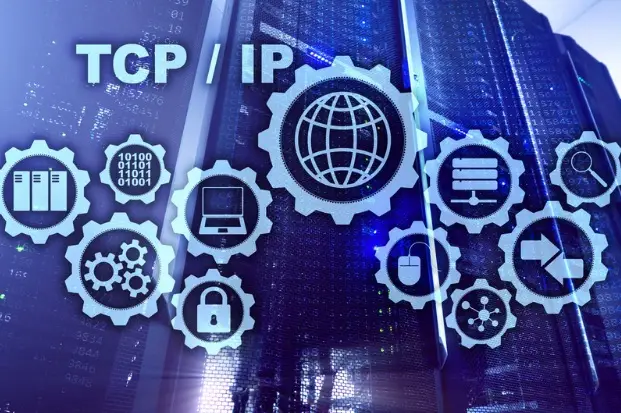127.0.0.1:62893 – Exploring the Loopback Address and Its Role in Networking

The address 127.0.0.1:62893 is a specific type of Internet Protocol (IP) address known as a loopback address paired with a dynamic port. You might have heard of IP addresses, a series of numbers identifying computers on a network. But 127.0.0.1 is a special one. It allows a computer to “talk to itself,” which is crucial for testing, troubleshooting, and software development.
Port number 62893 is temporarily used to handle communication between applications on the same machine, helping developers and system admins without requiring external network traffic.
What is a Loopback Address?
When we say “loopback address,” we mean an IP address allowing your computer to refer to itself; it’s like sending a letter to your house to check that your mailbox works. The address 127.0.0.1 is reserved for this purpose. It’s used mainly for testing and troubleshooting because it doesn’t involve any external network.
No matter what network your computer is connected to, using this IP makes the machine “look at itself.” For example, if a developer builds a website, you can use 127.0.0.1 to test your website on your own machine before launching it publicly.
Port 62893 and Why It Matters
The number 62893 refers to a “port.” Just like an actual port lets ships come and go, in the world of computers, ports allow different programs or applications to send and receive data. There are a lot of standard ports, such as 80 (used for websites) and 443 (used for secure websites). However, 62893 is a dynamic or temporary port, which means it doesn’t have a fixed purpose. Instead, it’s often assigned randomly by software for temporary use, typically during the development of custom applications.
Why is 127.0.0.1 Important?
The loopback address 127.0.0.1 is essential in local testing and network diagnostics. Here’s why it is so significant:
Local Network Testing
When developers want to see how their programs work in a network, they use the IP address 127.0.0.1 to test it without needing an actual network. This way, they can check if their software functions correctly, but everything happens on their computer. By using this address, they avoid depending on live networks that might have other problems.
Instead, they can control everything. It’s like practicing in your own space before performing in front of others. For kids, think of it as trying out a new game on your console before letting friends join in.
Troubleshooting
Sometimes, things can go wrong with your computer’s network connections, and figuring out the issue is essential. One way to do this is by using 127.0.0.1. This IP address lets you check if your computer’s networking features, like its ability to talk to other computers, are working right. When your network isn’t functioning, testing this address helps see if it’s your computer’s fault or something else. It’s like checking if your TV’s remote control is working before assuming the TV itself is broken.
Isolating Problems
If your computer seems to be acting up, using 127.0.0.1 can help determine whether the issue is inside your laptop or caused by something outside. By “pinging” this address, you can see if your computer’s network parts are working as they should. If everything is okay when you test 127.0.1, the problem is with the more extensive network.
But if this check fails, the issue is likely inside your machine. This is similar to checking if your bike’s chain works before blaming the road for a rough ride.
Using 127.0.0.1 in Software Development
In software development, developers must constantly test their code to ensure everything works as intended. 127.0.0.1 is crucial because it allows this testing to be done locally. Here are some key ways it is used:
Localhost in Web Development
In web development, developers often use the term “localhost” to test their websites. When they type “localhost” in their web browser, it refers to the IP address 127.0.0.1. This address points back to the developer’s own computer, so they can work on their website without putting it online.
It helps them see how the website looks and behaves before anyone else can see it. For example, if a developer is creating a game or a blog, they can test it privately on their machine first. This way, they can fix any problems before launching it publicly.
Testing Networked Applications
Some applications, like games or messaging apps, need the Internet to work correctly. However, testing apps on the Internet may not always be safe or easy. Instead, developers use 127.0.0.1 to simulate a network on their own computers. This trick lets them check if their apps work without going online.
For example, if a developer is building a multiplayer game, they can see how it behaves when different players join, all without needing a real network. This allows them to safely catch bugs or errors in a controlled environment, ensuring a smoother launch later.
Debugging Code
Debugging is a process where developers search for errors or bugs in their code. Sometimes, when they are fixing these bugs, they don’t want outside factors to affect the process. Using 127.0.0.1, developers can isolate their testing to just their computer, making it easier to focus.
This means they don’t have to worry about network issues, hackers, or interruptions from other computers. For example, if a developer’s code has a mistake that breaks a webpage, they can try out fixes privately or on localhost. This makes debugging faster and keeps the code more secure during testing.
Security Implications of 127.0.0.1:62893
While 127.0.0.1 and port 62893 are primarily used locally, they can pose risks if not properly managed. A common misconception is that loopback addresses like 127.0.0.1 are safe from security threats. However, misconfigurations can still open doors for malicious activities. Here are a few essential security considerations:
Misconfiguration Vulnerabilities
Sometimes, if a system needs to be set up correctly, it can have weak spots that hackers can use to break in. Think of it like leaving a door unlocked by accident. If these weak spots, or “loopholes,” are not fixed, someone could sneak in and cause damage. To prevent this, systems must be regularly updated with patches that close these gaps.
Also, people in charge of systems should watch for strange activity on local ports (how systems communicate) because unusual behavior can indicate that someone is trying to break in.
Data Encryption
When you send information, even if it’s just on your own computer, it’s smart to scramble or encrypt the data so no one else can read it. Encryption is like putting your data into a secret code that only the right people can understand. This is especially important when using web apps that handle personal or private information.
If you don’t encrypt, someone could secretly take your data while it’s being sent and use it for evil purposes. So, always try to keep your data secure using encryption, even for things done locally.
Potential Exploits
Hackers sometimes use methods to attack systems, like DDoS attacks (when they flood a system with too much traffic), to make it crash or slow down. This can even happen on local loopback addresses used for testing things on a computer. While this doesn’t happen often, it’s still a good idea to ensure your computer has protections in place.
Firewalls are like security guards that help block bad traffic from getting through. They ensure that your system doesn’t get harmed, even if someone tries to attack it.
Can 127.0.0.1 Be Hacked?
Yes, hackers can exploit 127.0.0.1 if the system is not configured correctly. Though it’s typically a safe address since it doesn’t communicate outside the machine, software vulnerabilities, and misconfigurations can make it a potential target. To stay safe, users should regularly update their software and apply necessary security patches to avoid exposure to harmful attacks.
Conclusion
In summary, 127.0.0.1:62893 represents a vital concept in networking and software development. The loopback address 127.0.0.1 allows computers to test and communicate internally without external connections. The port 62893 helps software developers create and test applications without risking exposure to outside threats.
It’s a powerful debugging, testing, and troubleshooting tool within a controlled environment. However, proper security protocols are essential, such as keeping software updated and ensuring that data flowing through local ports is encrypted. You can also know about ADN-237 by going through that blog.
FAQs
What is the loopback address used for?
The loopback address 127.0.0.1 allows a computer to communicate with itself. It is often used for testing and troubleshooting purposes.
What does port 62893 do?
Port 62893 is a dynamic or temporary port often used during software testing. It enables applications on the same machine to communicate with each other.
Is 127.0.0.1 secure?
Yes, but misconfigurations and unpatched software vulnerabilities can make it risky like any other IP address. Keeping your software updated and using encryption can help prevent security issues.
Can hackers exploit 127.0.0.1?
While loopback addresses are generally safe, they can be exploited if the system has vulnerabilities. Regular software updates and proper configurations are essential for protection.
Why do developers use 127.0.0.1?
Developers use 127.0.0.1 to test their applications locally without involving external networks. It helps ensure the app works correctly on the developer’s machine.





